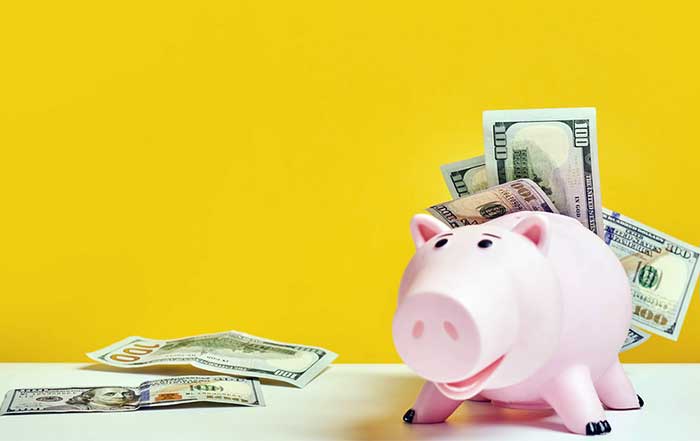Good News: US Bank Deposits Go Up 21.3% to Hit a Record &16.2 Trillion
In the wake of the on-going pandemic and its devastating consequences in the US, there seems to be good news sweeping across the nation- bank deposits are steadily going up, and things are slowly stabilizing. Americans' total bank deposits increased to almost $16.2 trillion (a 21.3% increase compared to the previous year). Most economic analysts are upbeat the US economic metrics are finally getting positive. Is this surprising?
Think of it: In recent weeks, going up to January 2020, the numbers for building permits, existing home sales, and housing stats got more robust. In fact, the estimates for manufacturing and other services indicate an impressive expansion far above the projections by Wall Street gurus.
And the glad tidings don't end there- the overall measures of business activities drawn from different regional outposts mostly point to promising activity. The situation is far better than what many thought would be the case. Admittedly, while unemployment levels in the US are still higher than what's generally acceptable, the claims for unemployment or joblessness (submitted to government agencies) are now lower than what most analysts expected. Of course, we cannot expect the economy to come full circle just yet. Yes, we can only hope this will happen once the government cares entirely for the most vulnerable.
But the big question is: How can the government accurately target the most vulnerable and impacted people? Think of this: Almost 500,000 people lost their jobs in December 2020. At present, almost 16 million people are sustained by benefits given by the government to the unemployed. As noted, the number of those still dependent on such tickets has gone down significantly; regardless, millions of Americans will continue to rely on multiple agencies for daily survival- and this will go on for quite a while.
But- as they say, behind every cloud is a silver lining. As of January 2021, the rest of the US economy seemed to be getting more vibrant by the day. Considering that the most affected citizens have benefitted from two separate government stimulus packages worth over $3 trillion, is it surprising? As a result, many US households have witnessed a significant strengthening of their financial and economic prospects. These dynamics cannot be taken for granted. The country now enjoys hitherto unprecedented levels of low-interest rates and bond-buying worth trillions of dollars. Yes, these factors characterize a new degree of Federal Reserve monetary goosing.
Further, to return the economy back on track, there has been an unusual array of lending programs that aim to return the economy to the levels that existed before the coronavirus struck. Interestingly, the Fed is now purchasing bonds at a closer pace- approaching $1.5 trillion each year. What does this say about the ordinary American's overall economic situation? It says this: Things are getting better and becoming more promising as the days pass.
Consider the following data: Between January- February 2021, Americans' bank deposits went up to almost $16.2 trillion. This represents a 21.3% increase compared to what the situation was just a year ago. In fact, many institutions of Wall Street are witnessing unexpected record highs. Of the promising bank deposits, we have some $1.4 trillion in what is referred to as "excess savings" by BofA; these are likely to rise to $1.6 trillion as the government continues to distribute more checks from the earlier $900 billion stimulus package passed by Congress.
Further, according to the Bank of America Global Research, this is not all: There's a general surge in spending. Moreover, debit and credit card expenditures have gone up by 22% over the year (up to January 16, 2021) for low-income individuals who benefited from the last round of stimulus payments. Interestingly, according to the bank source, "most US households have more cash now than they've ever had. Yes, they're extraordinarily cash-rich." The Pantheon Macroeconomics chief economist Ian Shepherdson recently said this in a webinar session: "Thousands of US households now have a ready war chest that they're ready to spend as soon as possible. Once the Covid fear is effectively gone, we can assume more people will be ready to spend as much as they can."
According to Shepherdson, the rate of inflation is likely to accelerate. This would force the Fed to reconsider its overly-accommodative policies. Eventually, they'll be forced to tighten things much sooner than the market expected.

